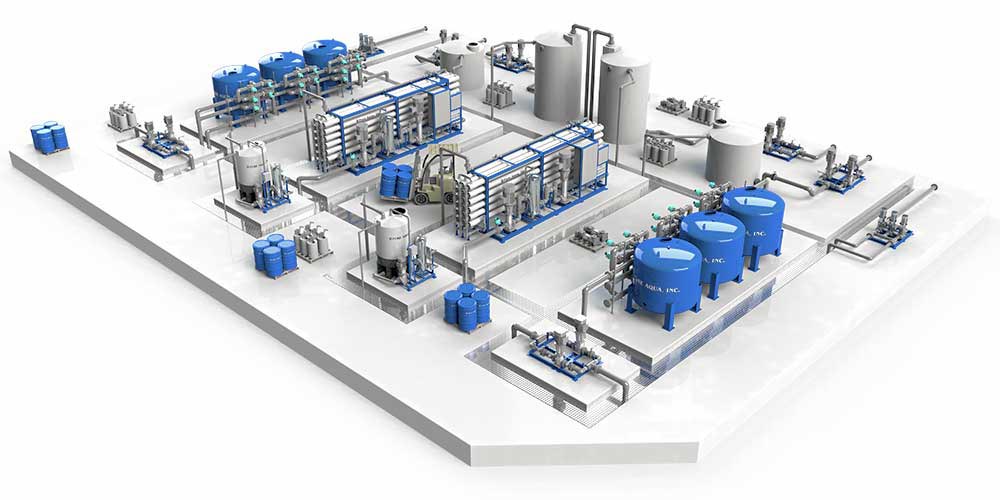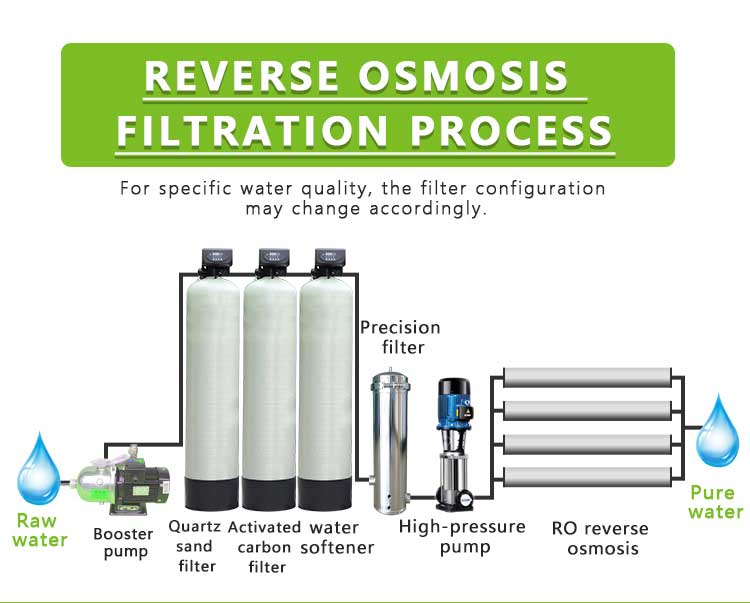Discovering Water Technology Startups: Exactly How They Revolutionize Lasting Solutions
Water Technology startups are arising as crucial gamers in the pursuit for lasting services to global water issues. These companies take advantage of innovative technologies to improve water effectiveness and monitoring. Their payments resolve pushing obstacles such as deficiency and contamination. Regardless of their capacity, they face various barriers that can influence their success. Understanding these characteristics sheds light on the future of water sustainability and the duty these startups might play in shaping it.
The Significance of Water Technology in Today's World
As global water scarcity increases, the significance of water Technology ends up being increasingly evident. Water Technology plays a critical duty in addressing the challenges presented by boosting and diminishing freshwater resources demand. It includes a broad variety of developments, consisting of innovative purification systems, wastewater treatment technologies, and smart irrigation services. These advancements not just improve the performance of water usage yet also advertise lasting practices throughout different sectors, consisting of agriculture, industry, and metropolitan development.
Furthermore, the relevance of water Technology expands past source administration. It fosters strength versus climate modification influences, such as droughts and floods, by providing flexible remedies for water preservation and management. Furthermore, it supports public wellness by guaranteeing access to tidy and secure drinking water. As the world deals with growing water-related difficulties, the combination of sophisticated water innovations is essential for cultivating sustainable development and safeguarding water availability for future generations.
Ingenious Solutions From Water Tech Startups
While traditional strategies to water monitoring have served their function, a new wave of water technology startups is transforming the market with cutting-edge solutions (Water Technology Startups). These business take advantage of cutting-edge technologies to deal with pressing water concerns, such as scarcity, contamination, and inefficient circulation. Lots of startups utilize expert system and maker discovering to enhance water use and predict need, resulting in even more lasting techniques
Furthermore, numerous firms concentrate on creating advanced purification systems that eliminate contaminants and make water secure for intake. Others check out decentralized water treatment modern technologies, enabling neighborhoods to handle their water sources more successfully. Some start-ups are introducing wise irrigation solutions that minimize water waste in farming, promoting environmental preservation.
Instance Researches: Successful Water Technology Startups
Numerous water Technology start-ups have actually become leaders in attending to international water challenges through ingenious approaches. One noteworthy instance is Xylem, which focuses on water analytics and clever framework to maximize water use and decrease waste. Their remedies have been implemented in various districts, showing significant improvements in water management performance.
An additional effective startup, Absolutely no Mass Water, has actually developed solar-powered hydropanels that draw out water vapor from the air, offering lasting drinking water in deserts. Water Technology Startups. This Technology has been released in numerous nations, making sure areas have accessibility to clean water
AquaVenture Holdings operates a diverse portfolio of water-as-a-service services, dealing with water scarcity with desalination and wastewater treatment. Their projects have actually verified vital in areas facing extreme water scarcities, showcasing the potential of cutting-edge water modern technologies to produce long-term, favorable impacts. These case research studies highlight the transformative capacity of start-ups in the water Technology field.
The Function of Smart Technology in Water Management
Smart Technology plays a necessary function in modern water administration by leveraging IoT applications to optimize resource usage. Data analytics improves effectiveness by offering workable understandings, while remote monitoring services allow real-time oversight of water systems. With each other, these innovations transform just how water is handled, promoting sustainability and operational efficiency.
IoT Applications in Water
As water shortage and administration obstacles increase internationally, the assimilation of Internet of Things (IoT) applications has emerged as a critical solution in maximizing water sources. IoT Technology assists in real-time surveillance and analysis of water systems, making it possible for a lot more reliable use and administration. Sensing units deployed in different water infrastructures can track quality, circulation rates, and leak, supplying valuable information to stakeholders. This information empowers customers and energies to make informed decisions, minimizing waste and enhancing conservation initiatives. Additionally, smart irrigation systems use IoT to maximize water distribution for agriculture, guaranteeing that crops get the ideal quantity of water at the best time. On the whole, IoT applications are changing traditional water monitoring methods, cultivating sustainability and resilience in water resource systems.
Information Analytics for Effectiveness
Harnessing information analytics is crucial for boosting efficiency in water administration. Water Technology start-ups are progressively using innovative analytics to maximize resource appropriation and minimize waste. By evaluating data from various sources, these startups can determine patterns and patterns that educate better decision-making. Predictive analytics can anticipate water demand, permitting energies to adjust supply accordingly, thus reducing surpluses and lacks. In addition, real-time data handling makes it possible for the immediate discovery of leakages and ineffectiveness within distribution systems, significantly reducing operational costs. Furthermore, data-driven insights empower stakeholders to apply targeted conservation approaches, cultivating lasting practices. Fundamentally, incorporating data analytics right into water management not only streamlines procedures yet additionally advertises lasting sustainability in water source usage.
Remote Surveillance Solutions
While typical water administration systems usually battle with ineffectiveness, remote monitoring services are transforming just how water sources are taken care of. These innovative innovations make it possible for real-time information collection and evaluation, enabling stakeholders to check water top quality, flow rates, and use patterns from afar. Utilizing sensors and IoT gadgets, remote tracking offers prompt understandings that facilitate aggressive decision-making. This change not just boosts operational efficiency but additionally promotes sustainability by reducing water waste and enhancing resource allotment. In addition, remote tracking systems can identify prospective concerns before they escalate, thus reducing the danger of contamination or facilities failing. As water Technology start-ups remain to develop these remedies, the market is positioned for considerable improvements in lasting water administration practices.
Challenges Encountering Water Technology Startups
Water Technology start-ups run into considerable difficulties that can prevent their development and success. Secret problems consist of securing sufficient funding, maneuvering via complicated regulative environments, and competing in a jampacked marketplace. These challenges call for calculated planning and development to get rid of.
Financing and Investment Hurdles
Technology in water Technology holds tremendous potential for dealing with global difficulties, startups in this market commonly encounter considerable funding and financial investment obstacles. Several financiers remain mindful, viewing the water sector as risky due to its complex regulatory landscape and long development timelines. Additionally, start-ups frequently battle to demonstrate immediate productivity, which can hinder possible backers. Conventional financial backing may overlook water modern technology, preferring industries with quicker returns, such as tech or durable goods. Safeguarding gives and government funding can be taxing and competitive, additional complicating monetary security. As an outcome, many cutting-edge water Technology start-ups find themselves in a ragged edge, requiring innovative funding approaches to browse these financial obstacles and achieve their objectives
Governing Compliance Issues
Guiding governing conformity is a considerable difficulty for startups in the water Technology market, as they should grapple with a myriad of local, nationwide, and global regulations. These regulations usually encompass water top quality criteria, ecological security regulations, and safety methods, which can vary widely throughout jurisdictions. Startups may discover it challenging to navigate this facility landscape, especially when scaling operations or going into brand-new markets. The prices connected with compliance can be substantial, drawing away sources far from innovation and product growth. Additionally, hold-ups in acquiring needed permits or qualifications can impede growth and market access. A durable understanding of regulatory frameworks is crucial for these start-ups to ensure sustainable procedures and stay clear of prospective lawful consequences.
Market Competition Characteristics
As water Technology start-ups emerge in a competitive landscape, they deal with various challenges that can hamper their growth and advancement. Established firms typically dominate the marketplace, leveraging sources and experience to keep their positions. Startups have problem with restricted funding, which restricts study and growth capacities, making it tough to contend on Technology and pricing. In addition, the quickly developing nature of water technologies demands constant adjustment, additional straining startup resources. Regulatory obstacles can complicate market access, as conformity with ecological standards is essential yet costly. Bring in proficient ability in a specific niche field presents one more obstacle, as bigger firms might supply even more appealing work packages. As a result, these aspects produce a complicated atmosphere for water Technology startups aiming to prosper.

The Future of Water Technology and Sustainability

The future of water Technology will likely focus on incorporating synthetic knowledge and data analytics to maximize water distribution and usage patterns. By utilizing real-time information, companies can forecast lacks and manage resources better. In addition, sustainable techniques will certainly come to be a foundation of the market, motivating round economies where water is reused and treated. Eventually, the continued development of water Technology will certainly be vital in developing durable infrastructures capable of meeting the obstacles postured by environment modification and populace development while promoting environmental stewardship.
Frequently Asked Questions
What Are the Key Metrics for Assessing Water Technology Startups?
Secret metrics for assessing water Technology start-ups include market possibility, scalability, customer procurement prices, earnings development, modern technology development, regulatory compliance, ecological impact, competitive benefit, and team proficiency, all crucial for establishing long-term practicality and success.
Exactly How Can Individuals Assistance Water Technology Innovations?
Individuals can support water Technology advancements by spending in start-ups, promoting for policy adjustments, taking part in area efforts, sharing understanding concerning lasting practices, and advertising understanding of water concerns with neighborhood events and social media.
What Are Common Financing Resources for Water Technology Startups?
Usual financing sources for water technology startups consist of endeavor resources, government gives, crowdfunding systems, angel financiers, and company collaborations. These economic methods assist assist in innovation and development in sustainable water administration technologies.

Which Industries Benefit Many From Water Technology Advancements?
Industries such as farming, power, production, and community services profit significantly from water Technology developments. These innovations boost water performance, reduce costs, and advertise sustainable practices, eventually adding to ecological conservation and source monitoring.
Exist Any Type Of Governing Challenges Certain to Water Innovation?
Yes, water Technology encounters governing obstacles, consisting of conformity with ecological criteria, permitting processes, and differing local guidelines. These intricacies can prevent advancement and slow the application of new technologies in the water management industry.
Water Technology startups are emerging as critical players in the pursuit for lasting options to global water concerns. As website global water shortage magnifies, the significance of water Technology comes to be significantly noticeable. Others explore decentralized water therapy modern technologies, allowing neighborhoods to manage their water resources a lot more efficiently. An additional successful startup, No Mass Water, has actually created solar-powered hydropanels that draw out water vapor from the air, supplying sustainable drinking water in arid areas. Their jobs have actually proven necessary in regions dealing with severe water lacks, showcasing the capacity of innovative water innovations to create enduring, favorable influences.